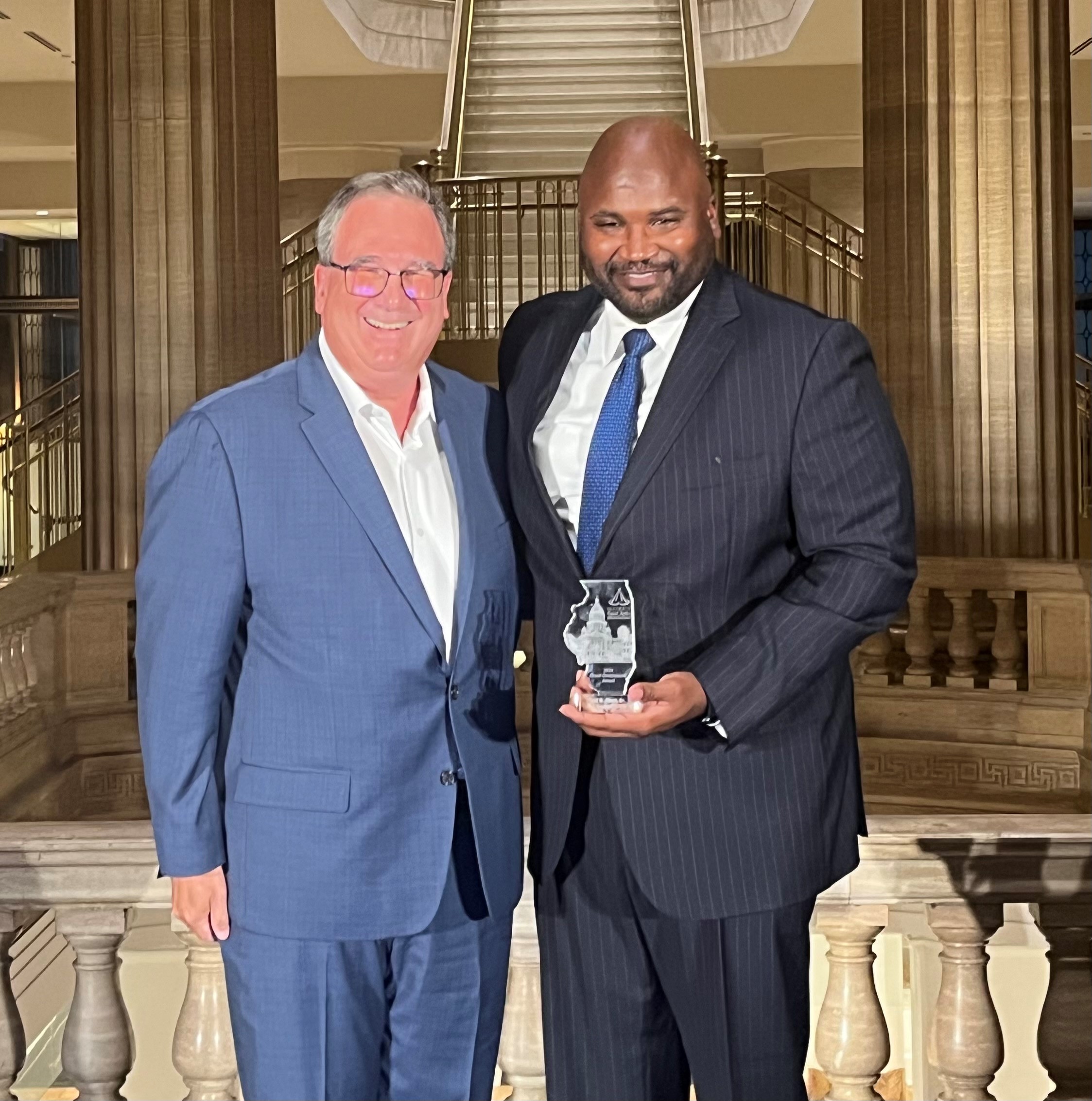
The 2025 Illinois Legislative Black Caucus Foundation Scholarship cycle is open! All eligible high school seniors and undergraduate students in Illinois who plan to further their education at a two- or four-year college this fall are encouraged to apply online by May 31 at ILBCF.org/scholarships.
SPRINGFIELD – State Senator Elgie R. Sims, Jr. is expanding upon his work to make the criminal justice system more fair, transparent and equitable by requiring police dashboard camera recordings to be retained for a longer period of time.
"Dashboard camera footage is an objective witness that protects both officers and citizens,” said Sims (D-Chicago). “When we limit how long these records are kept, we risk losing crucial evidence that could either exonerate the innocent or hold the guilty accountable.”
Sims’ law will require recordings from cameras in law enforcement patrol vehicles to be retained for 90 days – putting the retention period in line with the time body-camera footage must be kept.
Additionally, if an officer’s body-worn camera is turned off at the request of a victim or witness, the officer must continue in-car video recording and inform the person of that.
Senate Bill 2655 was signed into law Friday.

CHICAGO — State Senator Elgie R. Sims, Jr. was recently elected to serve as the chair of the Council of State Governments.
“It is a tremendous honor to have been elected by my colleagues from all 50 states to serve in this important position,” said Sims (D-Chicago). “Many of the skills and much of the knowledge about policy I developed in partnership with people I met through the Council of State Governments and I am proud to help shape future generations of leaders through this amazing organization of state government leaders.”
The Council of State Governments is the nation’s largest nonpartisan organization serving all three branches of state elected and appointed officials. The mission of the group is to champion excellence in state government.
Sims was nominated by his peers at CSG’s Midwestern Legislative Conference to join the national leadership team in 2022. The nonpartisan group’s executive committee then chose him to serve as national chair-elect in 2024 and national chair in 2025.
Sims has been involved with the Council of State Governments since 2012, when he served in the Illinois House of Representatives. He previously served as the group’s Midwest chair and hosted its regional conference in Chicago in July 2019. As chair, Sims is responsible for hosting the national conference – which will be held in Chicago Dec. 9-13, 2025. Sims has chosen to focus on improving civility in our public discourse as his Chair’s Initiative for 2025.
“By joining forces with hundreds of other lawmakers from both sides of the aisle from all states, we will work to improve the quality of life for everyone who calls this great nation home,” said Sims. “I look forward to years of continued service with the Council of State Governments.”
Sims took the oath of office as chair over the weekend and will serve as chair until the end of 2025.
 CHICAGO – State Senator Elgie R. Sims, Jr. received the Good Government Award from the Illinois Equal Justice Foundation Thursday for his advocacy to fund legal aid programs – helping more than 2.3 million Illinois residents seek justice.
CHICAGO – State Senator Elgie R. Sims, Jr. received the Good Government Award from the Illinois Equal Justice Foundation Thursday for his advocacy to fund legal aid programs – helping more than 2.3 million Illinois residents seek justice.
“Our government’s primary responsibility is to protect the rights of all people and I am proud to advocate for greater state funding for civil legal aid and the IEJF to live up to this basic responsibility,” said Sims (D-Chicago). “Through its grant making, IEJF champions the legal needs of our most underserved communities to ensure everyone is protected by our civil justice system.”
Page 4 of 47